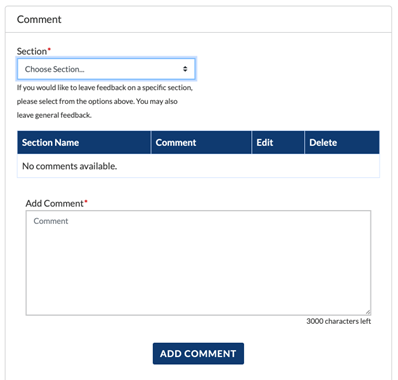Dear Colleagues:
As we communicated to you some months ago, the American Psychological Association has been in the process of revising its Ethics Code. A proposed draft of the revised Code is now available, and the APA is accepting public comments on the proposed new language through March 19, 2025.
We are reaching out to encourage you to submit comments on the Code supporting strengthened test security protection through the APA’s feedback portal. Directions on how to access that portal and submit comments are below. Also included below is draft language from the IOPC Task Force on Test Security and Third Party Observers which you can use in whole or part in formulating your comments on the proposed revisions to the Code.
Our prior collective efforts to make our voices heard and our position clear to APA leadership have been successful and this is likely our final opportunity to influence the text of the revised Ethics Code. We need everyone's participation and support to promote the protections necessary to support the clinical and scientific rigor upon which psychology and neuropsychology rely. Please plan to submit your comments no later than March 19, 2025.
To submit comments:
- Go to the APA Public Comment Site
- Scroll to the bottom of the page and provide your demographic information
- To add your comments, find this section of the form:

- In the dropdown menu, select your choice “General Comments to the Code” or “Standard 10.07 Test Security” may be good options.
- Highlight the text below, copy, and then paste into the “Add Comment” box. Note that there is a 3,000 character limit. The below text was composed to be within the limit.
Consistent with the recently adopted APA Resolution on Protecting Psychological Test Security, Test Validity, and Public Safety (Feb. 2025), strong test security protections are needed to more fully maintain the scientific rigor and integrity of psychological and neuropsychological assessments. However, the proposed revision of APA Ethics Code standards, as written, does not sufficiently address concerns in these areas.
I stand with my fellow neuropsychologists in requesting that the APA Ethics Code Task Force amend proposed revision Standards 10.05, 10.07 and 10.11 to include the proposed text available at https://www.nanonline.org/Nanweb/AboutNAN/NewsUpdates/APA_Ethics_Code_Revision_March_2025.aspx. These edits underscore that we, as neuropsychologists, require clear, decisive protections within The Code in order to uphold the integrity of psychological test materials to ensure valid results, decrease the likelihood of test contamination which could threaten public safety, and lead to reduced access to services by further narrowing the pool of linguistically and culturally competent providers serving under-resourced and justice-involved populations. The tenets of these edits reflect:
- Protected TAE materials are test questions and stimuli, manuals, administration instructions, scoring methods, recordings of testing, test data sheets on which client/patient responses are recorded, clinical score reports issued by test publishers, or other test information, that if released to non-psychologists could jeopardize the integrity, accuracy, effectiveness, and continued validity and reliability of psychological tests. Protected test information is only to be accessible to licensed psychologists, who are ethically bound to protect them.
- Test information that can be released to non-psychologists, in response to client/patient releases and judicial orders, are test scores, written interpretative reports, and notes made during testing.
- Presence of third party observers during TAE renders testing administration non-standard, and compromises test security by divulging test materials and procedures to non-psychologists.
- Release of protected TAE under judicial protective order is inadequately protective of psychological and neuropsychological test materials, particularly in a digital age, as there is no method to adequately enforce protective order provisions and to prevent archiving and rapid distribution of test materials.
- Psychologists may withdraw from contracts and from retention in legal cases when test security protections are threatened.
Please view the model language for Standards 10.05, 10.07 and 10.11 drafted by content experts under the auspices of the Inter-organizational Practice Committee (IOPC), a coalition of all of the major national Neuropsychology organizations with advocacy expertise in the United States. Full text of the proposed revisions are found at https://www.nanonline.org/Nanweb/AboutNAN/NewsUpdates/APA_Ethics_Code_Revision_March_2025.aspx.